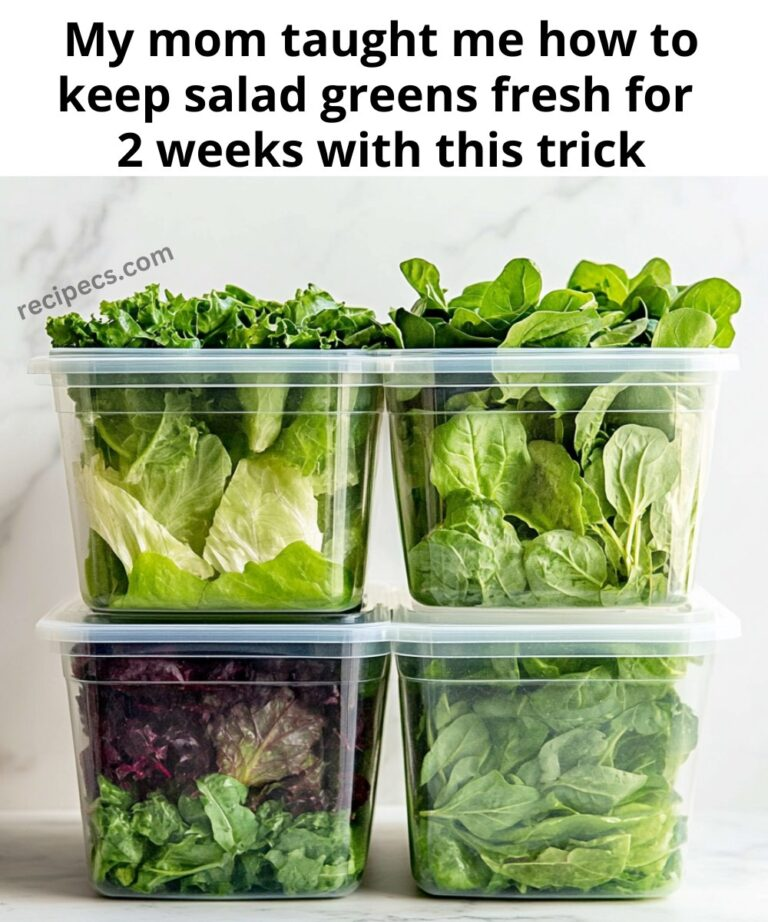ADVERTISEMENT
Step 1: Prepare Your Greens
First, it’s important to give your greens a good rinse. Even pre-washed greens can carry dirt, pesticides, or bacteria that may shorten their shelf life.
Wash your greens thoroughly under cool water to remove any dirt or chemical residues.
Dry them completely. This is essential—any leftover moisture can accelerate spoilage. The best tool for this job is a salad spinner since it removes water without damaging the leaves.
If you don’t have a salad spinner, lay the greens on a clean kitchen towel or pat them dry with paper towels. Make sure they’re as dry as possible before moving on to the next step.
Step 2: Use the Right Storage Container
Choosing the right container is critical to keeping your greens fresh. You want a container that is large enough to hold your greens without squishing or compressing them, which can cause bruising. A large, airtight container works best for this.
Line the bottom of the container with paper towels. These towels will absorb excess moisture, preventing it from building up around the greens. This small step makes a huge difference in extending the life of your salad.
If you prefer to avoid single-use paper towels, a reusable kitchen towel or dry tea cloth will also do the trick.
Step 3: Layer the Greens for Maximum Freshness
Now it’s time to arrange your salad greens inside the container.
Lay the greens loosely on top of the paper towels. Don’t pack them in too tightly—greens need a bit of airflow to stay crisp.
Once you’ve added all your greens, place another layer of paper towels on top. This helps absorb additional moisture from above.
Seal the container with its lid, ensuring it’s airtight. Properly sealed containers slow down the exposure to air, which keeps your greens from wilting too soon.
Step 4: Keep Greens Fresh in the Fridge
Now that your greens are safely stored, place the container in the refrigerator. The cooler temperature will slow down the natural breakdown of the leaves, helping them stay fresh for longer.
Check the paper towels every few days. If they become damp, replace them with fresh, dry paper towels. Keeping moisture under control is the most important part of this method.
Avoid overcrowding your fridge. Greens need a bit of breathing room, so make sure the container isn’t wedged between other items. Ideally, keep them in a crisper drawer if your fridge has one, as it’s designed to regulate humidity levels.
Why This Method Works So Well
This method is effective because it tackles the two biggest enemies of salad greens: moisture and poor airflow. Excess moisture leads to slimy leaves, while lack of airflow causes the greens to wilt. By using paper towels to wick away moisture and storing the greens loosely in a sealed container, you create the perfect balance. Your greens stay hydrated without becoming soggy, and they have just enough space to prevent bruising or compression.
